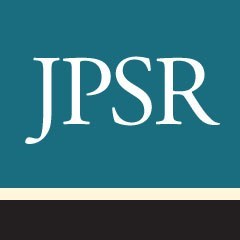<<The Saudi Cloud Hanging over U.S. Elementary Education
The Saudi influence on American education was not limited to the collegiate level but extended to the K-12 system as well. There were a few different ways in which this happened, but the issue most widely reported concerned textbooks and curriculum that were provided by the Middle East National Resource Centers (NRCs), which were federally funded under Title VI.62 Part of the federal sponsorship required these NRCs to conduct outreach, which was largely done by developing curriculum and lesson plans for U.S. K-12 schools. The fact that these NRCs had a federal stamp of approval made it very easy for the K-12 system to work with their outreach coordinators. These coordinators then helped provide the K-12 schools with material and curriculum on Islamic Studies that had been produced at these NRCs, which were in reality just the university MES centers. The problem was that many of these NRCs were also heavily funded by Saudi donations via their respective universities’ MES programs (e.g., Georgetown and Harvard’s MES centers). There were reports of English-language curricula and courseware that were very Saudi-friendly, being funneled from the Saudis to the U.S. universities and then through the outreach coordinators to the K-12 system.63
Stanley Kurtz, in a congressional testimony in 2004, provided information on how the lack of government scrutiny of the Title VI program’s funding of 17 different Middle East NRCs across U.S. universities had been used by the Saudis and other Gulf states to mold America’s K-12 education in a manner that suited them.64 Kurtz, a Hoover Institution researcher at Stanford, testified that his latest research into the Title VI Middle East NRCs had led to some startling revelations. He concluded that Saudi Arabia and other Gulf states had essentially hijacked these federally funded institutes to propagate a version of Islam and the Middle East that was highly biased. He added that the products, atmosphere, and teaching were extremely biased and that these MES centers had focused excessively on criticizing U.S. foreign policy to explain the problems of the Middle East. He offered several examples, most prominently the postcolonial theory of Edward Said, the Palestinian American professor of literature (not Middle Eastern Studies) at Columbia. This theory had permeated university MES programs and become the prevailing academic view after Said published his book Orientalism in 1978.65
Kurtz pointed out in his testimony that Said’s opinions about the United States and its policies were very clear if one examined his other writings, such as his columns in Egypt’s most widely circulated newspaper Al-Ahram. In these writings he called America a “stupid bully” and condemned it as a nation with a “history of reducing whole peoples, countries, and even continents to ruin by nothing short of holocaust.”66 Kurtz went on to say that he was by no means suggesting the banning of Said’s writings or theories, but that there should be a balance in the ideas presented by the NRCs when they provided outreach for training American K-12 teachers. He used examples of his own, and many from Martin Kramer’s book Ivory Towers on Sand: The Failure of Middle Eastern Studies in America, to demonstrate the level of bias in MES programs in Western academia. One such case that he presented to the congressional committee showed that the only material selected and then presented in a recent UC Santa Barbara NRC outreach seminar for K-12 teachers had been writings and theories by Said and those like-minded and influenced by him.67 He further pointed out that other scholars who had very differing views of the Middle East and U.S. foreign policy in the region, such as Harvard’s Samuel Huntington, Princeton’s Bernard Lewis, and Johns Hopkins’ Fouad Ajami, were basically blacklisted, their writings excluded from contemporary MES programs across U.S. universities.>>
http://jcpa.org/article/saudi-....specter-over-america
